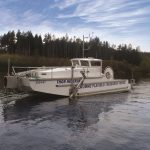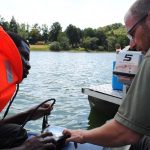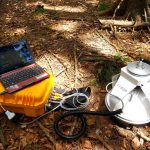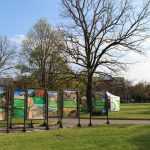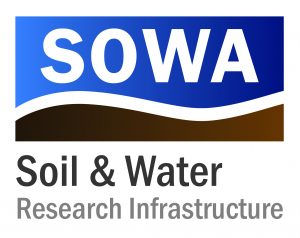 SoWa – website
SoWa – website
Hosting institution: Biological Center, CAS
Partner institutions:
The SoWa Research Infrastructure will focus on research on the interaction of biotic and abiotic processes responsible for nutrient cycling (with emphasis on nitrogen and phosphorus and their biochemical and biological transformations) in soil, aquatic ecosystems and transition zones that form the interface between soil and water, from the micro level to the catchment level. Emphasis will be put on systems under anthropogenic pressure. The SoWa research infrastructure will primarily support research activities and open access services aimed at understanding of the mechanisms and processes responsible for key ecosystem processes and services at catchmet level (e.g. water runoff, water purification, nutrient flow in the landscape, organic matter decomposition and nutrient release and related key biological processes). SoWa’s research infrastructure will also focus on exploring changes in key mechanisms and processes after major anthropogenic disturbances. It will provide analyzes, methodological backgrounds and expertise in soil biology, hydrobiology, hydrology, flow and nutrient cycles in ecosystems and modeling of their interactions. These services will complement the focus of other institutions of basic and applied research in the Czech Republic, foccused on soil and aquatic ecosystems.
Future development
The construction phase of the SoWa research infrastructure is planned for the years 2017 to 2019, including the installation of experimental catchment and the development of databases for data sharing and processing. The result will be a worldwide unique combination of microcosms, mesocosms and artificial catchment, complemented with long-term monitoring in natural landscapes at catchment level. The data obtained will be combined with already available long-term datasets and made available through open access services. The scientific value of the proposed facilities for handling the ecosystem, especially the artificial catchment, will increase with the development of ecosystems in the catchment and with a well-known history of this development. This, along with the simplicity and robustness of the design, and the fact that most high-tech devices can be easily upgraded, creates a perspective for the long-term operation of the research infrastructure. Between 2020 and 2022, the research infrastructure will focus on increasing the level and quality of services provided through open access and on the implementation of established research milestones. It will restore the basic equipment provided by the host and partner institutions, which will extend its lifetime add expand its equipment capabilities with addidtion modern instruments for monitoring physicochemical, biochemical and biological phenomena at all monitored scales, from microenvironment to landscape. In 2020, a new partner institution, the Institute for Hydrodynamics of the Academy of Sciences of the Czech Republic, v.v.i. will join SoWa’s research infrastructure which will bring unique another input in terms of , long-term observations of inputs and outputs of water (vapor, transpiration and runoff) from a small, water catchment area that can serve as a reference for assessing ecosystems and river basins that are anthropogenically affected. These observations will serve as a basis for the modeling of both hydrological processes and and determination of their balance, with emphasis on phenomena in transitional zones between soil and aquatic ecosystems.
Socio-economic impact
Soil and water interactions, which fulfill basic ecosystem functions for the wellbeing and future development of human society (soil fertility, plant growth, clean water provisioning, drinking water supply, water retention, climate regulation, food security, etc.) are under strong anthropogenic pressure that may disrupt the provision some of the key ecosystem services. Sustainable use and management of land and aquatic ecosystems is a critical point in maintaining the competitiveness of the Czech economy. Fulfilling the scientific objectives of the SoWa research infrastructure is important for improving basic ecosystem services, especially in the fields of reclamation, remediation and decontamination, provision of clean water for potable water production, flood protection, sustainable agricultural and forestry production, and nature conservation subject to key EU directives to be implemented in the national policy of the Czech Republic. The outputs of the SoWa research infrastructure will be of practical application in reclamation (e.g. mining and decontamination companies) and it will serve as a basis for the decision making of the state authorities of the Czech Republic.
